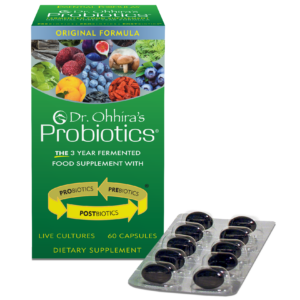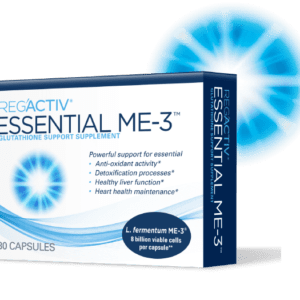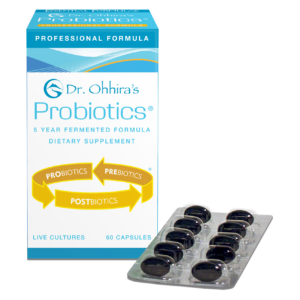They are not only safe but critical to baby’s immune system
By Ross Pelton, RPh, PhD, CCN
Scientific Director, Essential Formulas
Did you know that a mother’s microbiome plays a critical role in the formation and development of her baby’s microbiome and immune system? Because of this, many women want to know if probiotics are safe to take during pregnancy and lactation.
When probiotics are ingested orally or used vaginally, they are considered safe and well-tolerated. The primary question regarding taking probiotics during pregnancy is whether it might cause a health complication during pregnancy or to the infant after birth.
One concern regarding women taking probiotics during pregnancy is the potential for the ingested bacteria to cause systemic infections. Although rare, probiotic-related infections have been reported. However, the risk of developing an infection from ingested Lactobacillus probiotics is estimated to be less than 1 per million users, and there are zero reports of infections associated with the use of bifidobacteria.i
-
 Dr. Ohhira’s® Probiotic Supplements with Original Formula$13.95 – $89.95
Dr. Ohhira’s® Probiotic Supplements with Original Formula$13.95 – $89.95 -
 Reg´Activ® Essential ME-3$39.95
Reg´Activ® Essential ME-3$39.95 -
 Dr. Ohhira’s® Probiotics Professional Formula$39.95 – $129.65
Dr. Ohhira’s® Probiotics Professional Formula$39.95 – $129.65
A meta-analysis of 8 randomized control trials of probiotic use in more than 1500 pregnant women was published.ii Most of the women began taking the probiotics during the third trimester and continued until delivery. The studies included in the meta-analysis compared products containing Lactobacillus alone or in combination with Bifidobacterium with a placebo. There was no increase in the incidence of miscarriages, and there were no significant differences in birth weight, gestational age, or the frequency of cesarean section deliveries.
Two studies examining the use of Lactobacillus-containing probiotics in the first trimester of pregnancy reported no adverse health issues.iii,iv Two other trials in which women who took probiotics continually starting in the first trimester until the end of breastfeeding reported no health problems to the mothers or their infants.v,vi
Probiotics During Breastfeeding
Several studies report that taking probiotics during breastfeeding can confer health benefits to the infant. For example, the administration of probiotics during breastfeeding has been shown to improve an infant’s immune system.vii Probiotic supplementation during pregnancy and breastfeeding has also been shown to reduce the incidence of childhood eczema.viii,ix
Cesarean Births: Infants born via cesarean section delivery do not get exposed to the mother’s vaginal microbiome, which compromises the infant’s immune system.x Studies show that fewer infants delivered via C-section develop allergic diseases such as eczema and asthma when the mother took probiotics during the last month of pregnancy, and probiotics were administered to the infant from birth until the age of 6 months.xi
Dr. Ohhira’s Probiotics® contain a combination of probiotics, prebiotics, and postbiotic metabolites. As Scientific Director, I have suggested the following protocol for women who have had a C-section delivery. I instruct the women to bite or puncture a single capsule of Dr. Ohhira’s Probiotics and squeeze the contents onto her fingertip then swish the finger around the inside of the infant’s mouth. This enables the probiotics, prebiotics, and postbiotic metabolites in Dr. Ohhira’s to enter the infant’s digestive tract and help them develop a healthy microbiome.
Conclusion: Taking probiotics during pregnancy and breastfeeding has not been shown to cause any health or safety concerns for pregnant or lactating women or to their infants. Also, probiotic supplementation during pregnancy and breastfeeding has been shown to improve the microbiome and confer health benefits to both the mother and her newborn child.






